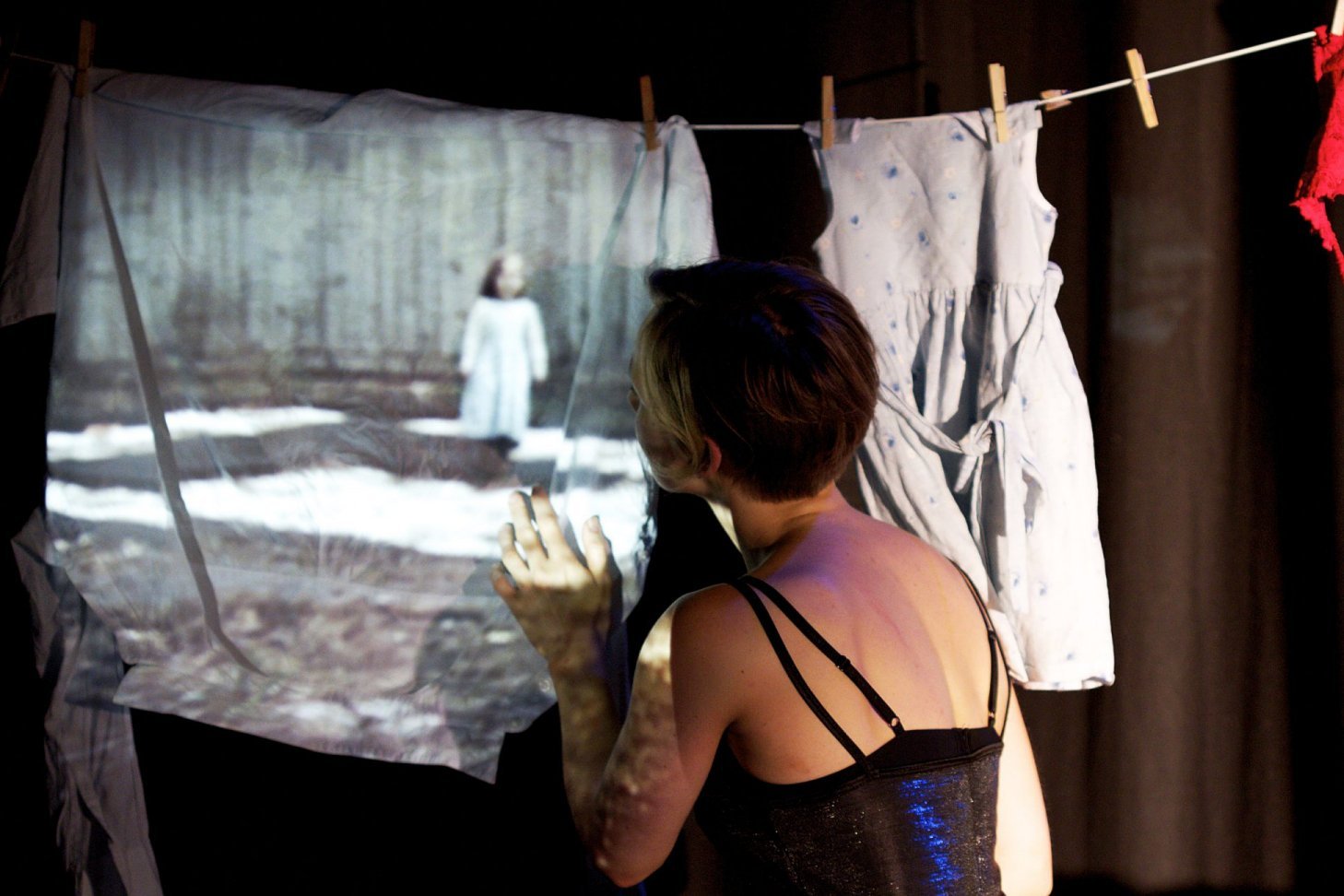
A scene from ‘Bound’, one of the productions in the Pay What You Can season
A radical approach
Harlow Playhouse’s Pay What You Can pricing initiative is attracting new audiences, but is it too financially risky? Scott Ramsay reports half way through its first season.
The programme at Harlow Playhouse has broadened in recent years, bringing us new opportunities to develop audiences. Harlow has a large geographic catchment area with a complex demography, and sits within the bottom 20% of arts-engaged districts.
Like many smaller presenting venues, marketing capacity is tight. Delivering over 180 productions and events a year with one marketing officer and no outreach support has been challenging.
When audiences enjoy the quality productions on offer, they are more inclined to give generously if they are able to
Over the past three years we’ve explored a number of incentives, such as low pricing for targeted audiences and curated mini-seasons, and escalator schemes for targeted groups. Even taking into account the limited resources available to us, audience growth was unsatisfactory.
Seeking a single initiative
So when planning the current season we sought a more radical approach. We wanted to create a single initiative that was easy to communicate, with a stronger access message, in order to significantly break down barriers and reduce the perceived risk.
We researched existing Pay What You Can and Pay What You Decide initiatives from other venues, and created our own version to suit the dynamics of what we wanted. We call our version Pay What You Can (PWYC), heavily promoting the no barrier/no risk message to our community.
Audiences book tickets in the normal manner (online, in person or by phone), but we don’t ask for any payment up front. We then send email reminders in the run-up to the event. On entry to the performance, audiences receive printed envelopes along with information on the production, PWYC and forthcoming productions.
After the performance we normally facilitate a post-show discussion, which gives an opportunity to say a few words, including the encouragement of donations on exit. We find the printed envelopes a useful and discreet tool for encouraging donations, as well as leaving comments.
Positive effects
We are only part way through our first PWYC season, but we’ve already seen significant positive effects. Productions within the season have been easier to market, and we’ve seen strong audience growth and a palpable positive wave of recognition from the community.
So far, we estimate we’ve taken the same income as if we’d not introduced PWYC, but we’ve seen more than double the number of bookers, which has wider benefits. We’ve also seen a large number of new bookers to the venue, as well as a younger average audience age.
The stats
|
A pleasant surprise has been the transformative effect on family-friendly audience development. With the amplified cost and risk of bringing a family to the theatre, particularly to less familiar genres, the benefits of PWYC are even stronger.
As an example, for a forthcoming family circus arts production we would have seen 200 tickets as the upper end of achievable with traditional pricing. However, as part of the PWYC initiative we’ve seen a swift allocation of all available tickets in our 400-seat auditorium. And that has been achieved with modest marketing resources.
When setting up the PWYC initiative without an up-front payment, we were aware of the risk of some bookers not attending. So far, the attendance rate has been 76%, with many bookers contacting us in advance to cancel, encouraged by our regular email reminders.
The drop-off is worse when external events conflict with performance dates, which is something we can’t always foresee when programming well in advance. For example, we found a number of younger bookers failed to show up for one event because the Brit Awards was scheduled on the same evening.
On balance, the risk of losing bookers is more than countered by the benefits of making the productions more accessible. When audiences enjoy the quality productions on offer, they are more inclined to give generously if they are able to.
We’re also able to treat donations as VAT-exempt, which provides a considerable boost, and we’re currently looking at Gift Aid potential.
Investment in artistic work
In a sense, our financial decision to invest in artistic work to underpin audience development was taken some time ago. The decision to launch PWYC was about improving the reach of that investment, and narrowing it down to a single, powerful message to the community – no barriers, no risk and open to all.
Most of the productions in the PWYC season are funded by Arts Council England (ACE), either through Grants for the Arts or the Strategic Touring Fund. Our modest investment in each piece has helped unlock ACE funding for the companies and artists, but also limited our financial exposure in delivering the season.
We are committed to continuing PWYC programming into the next season, further exploring what it can do to broaden our audience and help reposition perceptions of accessibility within our catchment area. We will also explore the effects of introducing a single PWYC performance within a wider performance schedule of the same production, something that has worked well in producing theatres such as Nottingham Playhouse, but is less common in presenting theatres.
Finally, here are three points to consider:
- How might PWYC simplify and magnify how productions are marketed to develop new audiences, particularly where resources are limited.
- How might PWYC be used to open doors to new family audiences, where the combined cost or risk of a trip to the theatre is off-putting.
- What method of booking and paying would work best, taking into consideration VAT exemption for donations and associated Gift Aid potential.
Scott Ramsay is Director of Harlow Playhouse.
www.playhouseharlow.com
Join the Discussion
You must be logged in to post a comment.